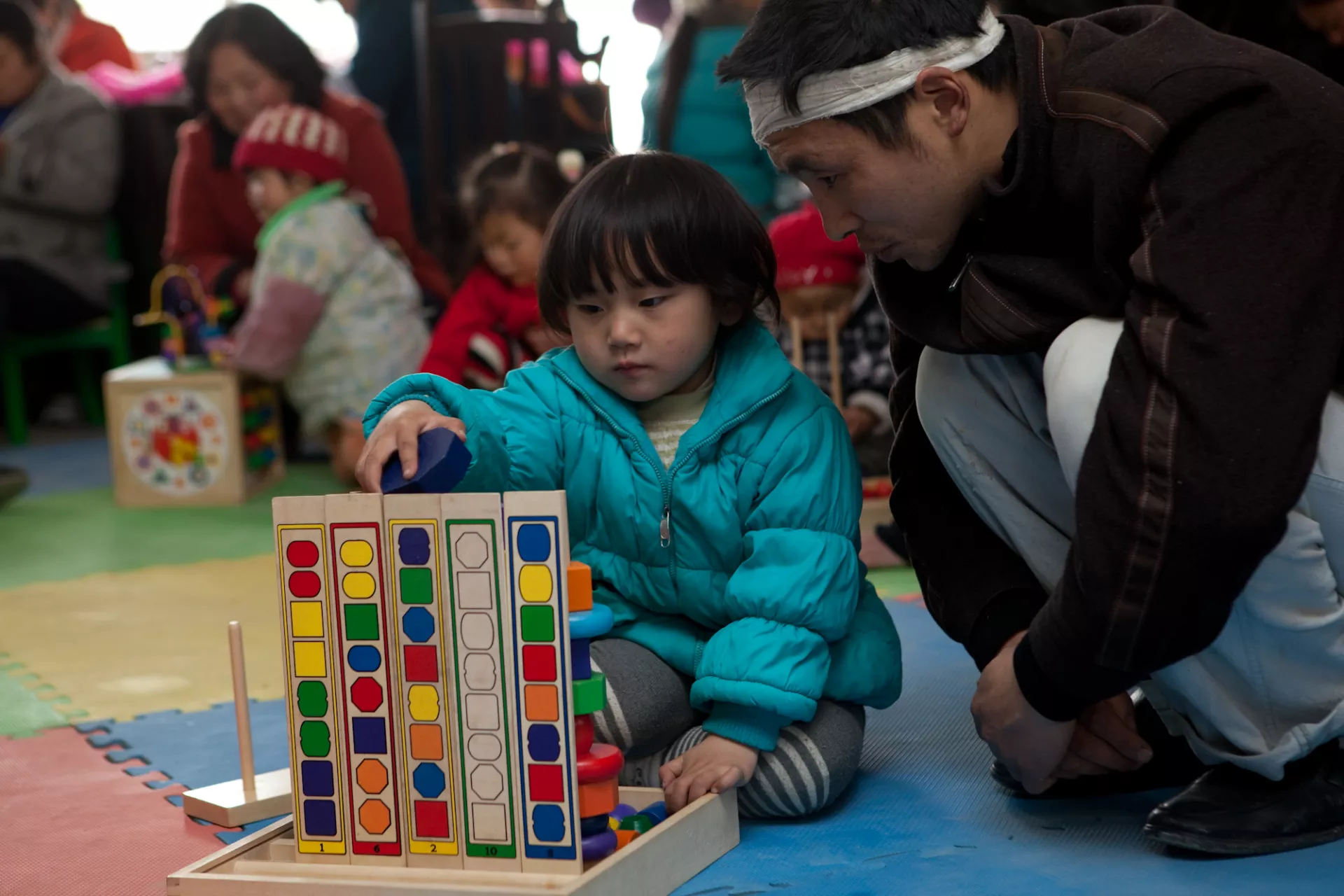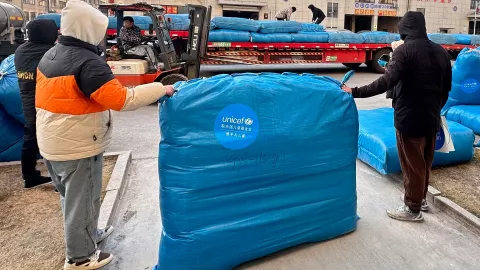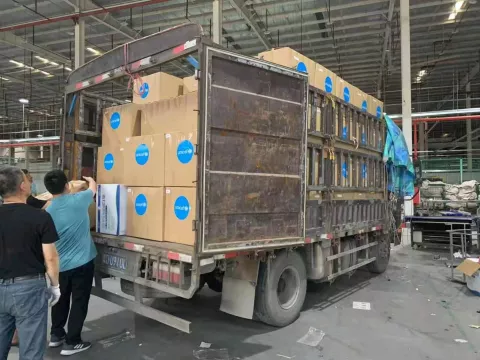Safe spaces help children deal with aftermath of China's 2008 earthquake
Safe spaces help children deal with aftermath of China's 2008 earthquake

- Available in:
- 中文
- English
On 12 May 2008, China was hit by its worst earthquake in three decades. A massive reconstruction effort has followed. In the run-up to the disaster's first anniversary, UNICEF has revisited hard-hit areas in Sichuan and Gansu provinces. Here is one of the resulting stories.
FEISHUI, China, 5 May 2009 – Tang Xiaoping used to own one of the most popular private kindergartens in Feishui, a small township in Anxian, part of southwest China's Sichuan Province. She had thought she would spend the rest of her life doing just that.
But with the May 2008 disaster that later became known as the 'Wenchuan Earthquake', everything changed.
Education, recreation and protection
Feishui was only about 200 miles away from the epicentre. Although no local children were seriously injured in the quake, Ms. Tang found that its psychological impact on them was quite severe.
"After the earthquake, the children did not want to come to the kindergarten anymore," she said. "They did not want to see me either, saying that seeing me means the earthquake is coming."
In September, Ms. Tang found a new job – heading a child-friendly space set up by UNICEF for quake-affected children.
Child-friendly spaces – a key part of UNICEF's response to major natural disasters and emergencies around the world – aim to provide educational, recreational and protective services to children. Restoring education in emergency and post-emergency situations can help children regain some sense of normalcy in their lives, as well as hope for the future.
UNICEF has set up 40 such sites in the hardest hit regions in Sichuan, with strong support from local branches of the All-China Women's Federation and local governments.
Recovering from stress
At the Feishui Child-Friendly Space, Ms. Tang and her colleagues are contributing to the earthquake reconstruction effort by helping children recover from their stressful experiences.
"At first, parents were very suspicious and hesitant to send their children, and teachers at local schools regarded us as competition," said Ms. Tang, who was part of a team that visited the families of nearly every child and young person in the township to explain the purpose of a child-friendly space.
On the facility's opening day, about 80 children and parents showed up. But in the early days, the children were unusually quiet. "They did not laugh or cry. They did not talk. They just refused to interact with the rest of the world," Ms. Tang recalled.
From her years of experience in pedagogy and special training sessions organized by UNICEF, Ms. Tang knew that games were always a good way to help children move on from pain and suffering. She designed different games for each age group – simple ones for preschool children and more advanced ones for adolescents.
'I feel happier now'
The results were immediate. Once they began enjoying the games, the children began to smile and laugh again.
Wang Mingying, whose son Zhang Tong is attending the child-friendly space, said the three-year-old had become more carefree. "He loves coming to the child-friendly space, and he is having a lot of fun here," she noted.
Li Chao, 12, remembered feeling helpless in the first days after the earthquake. "Everything was just destroyed and shattered," he said. "It was like the whole world stopped.... But here at the child-friendly space, I realized that there were a lot of people out there helping us. I am very grateful for them."
Now Chao has become a volunteer. He comes after school on a daily basis, helping to organize games and distributing books and toys. "I feel even happier," he said, "now that I can help children younger than me."




